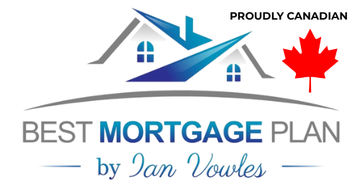Mortgage financing doesn't have to be difficult. We can do this together, here's the plan...
STEP ONE
Get Connected
The best place to start is to connect with me directly. The mortgage process is personal, and it can be daunting. My commitment to you is that I'll listen to all your needs, assess your financial situation, and provide you with a plan to move forward.
STEP TWO
Evaluate Options
Once we’ve had a look at your financial situation, we’ll consider a variety of mortgage options, I’ll outline what documents are necessary to qualify for a mortgage, negotiate with the lenders on your behalf, and arrange the mortgage that best suits your needs.
I am a Certified Financial Planner ® and have over 25 years of experience in the financial services industry. I understand that a mortgage is typically the single largest financial commitment that a person will make in their lifetime.
I provide holistic financial solutions for my clients based on their life goals and not just on what they qualify for. I work for my clients, not for a financial institution which allows me to select the best possible solution to meet the unique needs of each client.
Want to get started right away?
APPLY NOWHere are some of the nice things my clients have said about working with me.
I keep my website up to date so you can stay informed. Contact me anytime!

The idea of owning a vacation home—your own cozy escape from everyday life—is a dream many Canadians share. Whether it’s a lakeside cabin, a ski chalet, or a beachside bungalow, a second property can add lifestyle value, rental income, and long-term wealth. But before you jump into vacation home ownership, it’s important to think through the details—both financial and practical. Start With Your 5- and 10-Year Plan Before you get swept away by the perfect view or your dream destination, take a step back and ask yourself: Will you use it enough to justify the cost? Are there other financial goals that take priority right now? What’s the opportunity cost of tying up your money in a second home? Owning a vacation home can be incredibly rewarding, but it should fit comfortably within your long-term financial goals—not compete with them. Financing a Vacation Property: What to Consider If you don’t plan to pay cash, then financing your vacation home will be your next major step. Mortgage rules for second properties are more complex than those for your primary residence, so here’s what to think about: 1. Do You Have Enough for a Down Payment? Depending on the type of property and how you plan to use it, down payment requirements typically range from 5% to 20%+ . Factors like whether the property is winterized, the purchase price, and its location all come into play. 2. Can You Afford the Additional Debt? Lenders will calculate your Gross Debt Service (GDS) and Total Debt Service (TDS) ratios to assess whether you can take on a second mortgage. GDS: Should not exceed 39% of your income TDS: Should not exceed 44% If you’re not sure how to calculate these, that’s where I can help! 3. Is the Property Mortgage-Eligible? Remote or non-winterized properties, or those located outside of Canada, may not qualify for traditional mortgage financing. In these cases, we may need to look at creative lending solutions . 4. Owner-Occupied or Investment Property? Whether you’ll live in the home occasionally, rent it out, or use it strictly as an investment affects what type of financing you’ll need and what your tax implications might be. Location, Location… Logistics Choosing the right vacation property is more than just finding a beautiful setting. Consider: Current and future development in the area Available municipal services (sewer, water, road maintenance) Transportation access – how easy is it to get to your vacation home in all seasons? Resale value and long-term potential Seasonal access or weather challenges What Happens When You’re Not There? Unless you plan to live there full-time, you'll need to consider: Will you rent it out for extra income? Will you hire a property manager or rely on family/friends? What’s required to maintain valid home insurance while it’s vacant? Planning ahead will protect your investment and give you peace of mind while you’re away. Not Sure Where to Start? I’ve Got You Covered. Buying a vacation home is exciting—but it can also be complicated. As a mortgage broker, I can help you: Understand your financial readiness Calculate your GDS/TDS ratios Review down payment and lending requirements Explore creative solutions like second mortgages , reverse mortgages , or alternative lenders Whether you’re just starting to dream or ready to take action, let’s build a plan that gets you one step closer to your ideal getaway. Reach out today—it would be a pleasure to work with you.

If you’ve missed a payment on your credit card or line of credit and you’re wondering how to handle things and if this will impact your creditworthiness down the road, this article is for you. But before we get started, if you have an overdue balance on any of your credit cards at this exact moment, go, make the minimum payment right now. Seriously, log in to your internet banking and make the minimum payment. The rest can wait. Here’s the good news, if you’ve just missed a payment by a couple of days, you have nothing to worry about. Credit reporting agencies only record when you’ve been 30, 60, and 90 days late on a payment. So, if you got busy and missed your minimum payment due date but made the payment as soon as you realized your error, as long as you haven’t been over 30 days late, it shouldn’t show up as a blemish on your credit report. However, there’s nothing wrong with making sure. You can always call your credit card company and let them know what happened. Let them know that you missed the payment but that you paid it as soon as you could. Keeping in contact with them is the key. By giving them a quick call, if you have a history of timely payments, they might even go ahead and refund the interest that accumulated on the missed payment. You never know unless you ask! Now, if you’re having some cash flow issues, and you’ve been 30, 60, or 90 days late on payments, and you haven’t made the minimum payment, your creditworthiness has probably taken a hit. The best thing you can do is make all the minimum payments on your accounts as soon as possible. Getting up to date as quickly as possible will mitigate the damage to your credit score. The worst thing you can do is bury your head in the sand and ignore the problem, because it won’t go away. If you cannot make your payments, the best action plan is to contact your lender regularly until you can. They want to work with you! The last thing they want is radio silence on your end. If they haven’t heard from you after repeated missed payments, they might write off your balance as “bad debt” and assign it to a collection agency. Collections and bad debts look bad on your credit report. As far as qualifying for a mortgage goes, repeated missed payments will negatively impact your ability to get a mortgage. But once you’re back to making regular payments, the more time that goes by, the better your credit will get. It’s all about timing. Always try to be as current as possible with your payments. So If you plan to buy a property in the next couple of years, it’s never too early to work through your financing, especially if you’ve missed a payment or two in the last couple of years and you’re unsure of where you stand with your credit. Please connect directly; it would be a pleasure to walk through your mortgage application and credit report. Let’s look and see exactly where you stand and what steps you need to take to qualify for a mortgage.

If you’re a first-time homebuyer eyeing a new build or major renovation, there's encouraging news that could make homeownership significantly more affordable. The federal government has proposed a new GST rebate aimed at easing the financial burden for Canadians entering the housing market. While still awaiting parliamentary approval, the proposed legislation offers the potential for thousands in savings —and could be a game-changer for buyers trying to break into today’s high-cost housing landscape. What’s Being Proposed? Under the new legislation, eligible first-time homebuyers would receive: A full GST rebate on homes priced up to $1 million A partial GST rebate on homes between $1 million and $1.5 million This could mean up to $50,000 in tax savings on a qualifying home—a major boost for anyone working hard to save for a down payment or meet mortgage qualification requirements. Why This Matters With interest rates still elevated and home prices holding steady in many regions, affordability remains a challenge. This rebate could offer meaningful relief in several ways: Lower Upfront Costs: Removing GST from the purchase price reduces the total amount of money buyers need to save before closing. Smaller Monthly Payments: A lower purchase price leads to a smaller mortgage, which translates to more manageable monthly payments. Improved Mortgage Qualification: With a reduced purchase amount, buyers may find it easier to meet lender criteria. According to recent estimates, a homebuyer purchasing a $1 million new home could see monthly mortgage payments drop by around $240 —money that could go toward savings, home improvements, or simply everyday expenses. Helping Families Help Each Other This proposal also offers a win for parents who are supporting their children in buying a first home. Whether through gifted down payments or co-signing, a lower purchase price and more affordable monthly costs mean that family support can go further—and set first-time buyers up for long-term success. Is This the Right Time to Buy? If you’re thinking about buying a new or substantially renovated home, this proposed rebate could dramatically improve your financial position. Now is the perfect time to explore your options and make sure your mortgage strategy is aligned with potential policy changes. 📞 Let’s connect for a free mortgage review or pre-approval. Whether you’re buying your first home or helping someone else take that first step, I’m here to help you make informed, confident decisions.









